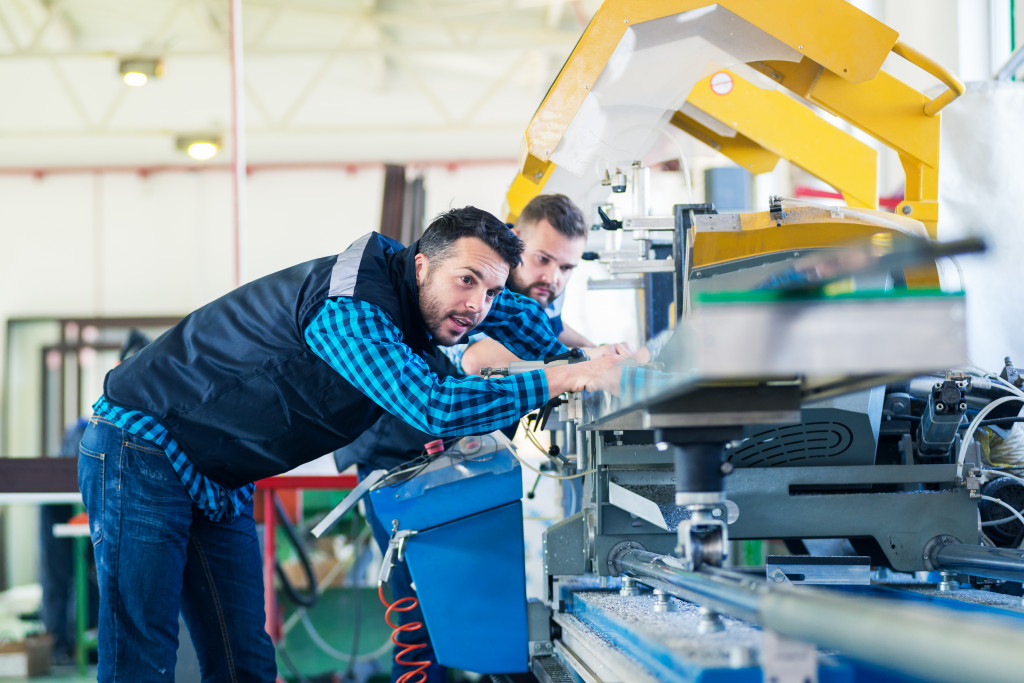- Starting a food factory entails careful planning, choosing the right location and funding, and obtaining necessary permits.
- Automation equipment like motorized rotary tables, conveyor belts, and filling machines boost productivity and consistency.
- Hiring skilled, passionate individuals and investing in training ensures a well-operated factory and a positive work culture.
- Success depends on a solid plan, quality equipment, a dedicated team, and staying abreast of industry trends.
If you’re an aspiring entrepreneur or a small business owner and are looking to start your food manufacturing factory, look no further. Starting a food manufacturing factory from scratch may seem daunting, but it’s not impossible. With hard work, determination, and the right tools and resources, you can turn your dream into a reality. This article will cover the essential tips and advice that can make your journey easier.
Develop A Concrete Plan
Starting a new business venture requires careful planning. It’s essential to spend time developing your business plan, researching the market, and figuring out what your unique selling points might be. You’ll also need to consider factors such as the following:
Location
The location of your factory is a pivotal factor that can significantly impact your operations. You’ll need a location that’s easily accessible, has sufficient space for all your equipment, and is in close proximity to your target market to reduce transportation costs. Additionally, consider the availability of raw materials in the area, the local labor market, and zoning regulations.
Financing
Starting a food manufacturing factory requires substantial investment. Prepare a detailed financial plan outlining anticipated costs such as purchasing or leasing a facility, buying equipment, hiring staff, raw materials, and marketing. You’ll also need to project your revenue and decide on the best sources of funding. These could range from personal savings and bank loans to investors and government grants.
Licenses
Obtaining the necessary licenses and permits is a crucial step in establishing your food manufacturing factory. These include a business license, a zoning permit, health department permits, and, specific to food manufacturers, a food production license. The types and number of permits required may vary based on your location, so be sure to do your due diligence in researching local and state laws.

Invest in Automation Equipment
Investing in automation equipment can be a game-changer for your food manufacturing factory. While the initial cost might seem high, the long-term benefits are worth it. Automated machines increase productivity, reduce human error, and ensure consistency in your products. Here are some examples of pieces of automation equipment:
Motorized Rotary Table
A motorized rotary table is one of the essential pieces of automation equipment you should consider integrating into your food manufacturing factory. A durable motorized rotary table is not just a high-quality piece of machinery but also an extremely functional tool that enhances precision and speed on your production line. It can perfectly handle a variety of tasks – from positioning your products for processing to rotating them at different stages of manufacturing.
Conveyor Belt
A conveyor belt system is an indispensable part of a food manufacturing factory. It enables efficient and quick movement of products from one stage of the process to another, significantly saving time and reducing manual labor. Conveyor belts come in various designs and materials suitable for different food items. Opt for a high-quality, easy-to-clean, and durable conveyor belt that can handle your specific production needs and comply with food safety regulations.
Filling Machine
A filling machine is another essential piece of equipment in a food manufacturing factory that is crucial for packaging your products. These machines are designed to fill containers—such as jars, bottles, or cans—with precise amounts of food products. They come in a variety of types, including volumetric fillers, auger fillers, and piston fillers, each suited to different types of food items.

Hiring the Right People
Having the right team on board is pivotal to your factory’s success. It’s critical to recruit individuals who are not only skilled and experienced in food manufacturing but also share your vision and passion for the business.
Positions may include production workers, quality control inspectors, machine operators, maintenance technicians, and managerial staff. Invest in employee training to ensure your team is well-versed in food safety regulations and efficient operation of machinery.
In most cases, employees are the face of your business, so it’s crucial to maintain a positive work culture and foster teamwork to ensure a smooth operation.
Starting a food manufacturing factory from scratch requires immense dedication, effort, and time. However, if you have a solid plan, the right equipment, and a dedicated team, you can turn your dream into a successful reality. Remember to stay updated on industry trends, continually research and improve your processes, and never hesitate to seek guidance from experienced professionals.



